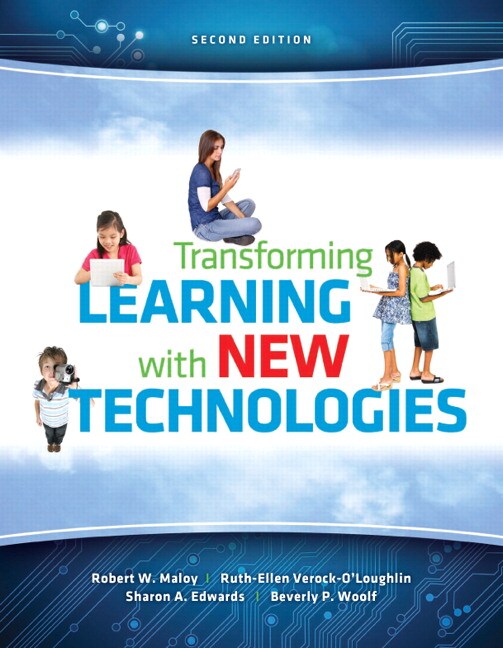TEXTBOOK
The textbook is a great mediator between technology and education. It illustrates what a classroom would be like if technology was at the threshold of the students' learning. Even though this is a required textbook for a college course, this can help an established, successful teacher with adapting their classroom to enhance learning through the utilization of technology. One of my favorite technological advancements in the classroom are the digital games for learning. I grew up playing Oregon Trail in school. Even though it does not offer as many educational perks as funbrain, it allowed room for creativity to choose the path that I took. From the different paths I took, I learned what things worked and what things did not. Oregon Trail did much more than just pass time, it engaged me in learning what were the best options while still implying my creativity. Transforming Learning with New Technologies is a great resource to use to continuously implement new technologies into the classroom to enhance the students learning.
DISCUSSIONS
Being able to interact with other human beings is something that every human being is born with. We all have the capacity to create conversation, arguments and express emotions through interaction with other people. Obviously, it is a little different when you are taking an online course and all you can see if a tiny profile picture, but that does not prohibit a different type of interaction, digital interaction. Besides, we are so used to texting, emailing or calling someone so digital interaction for this course was not too hard of a challenge. When humans interact and discuss things, not only does each person's knowledge expand from all other discussion, it also expands one's own view. Many things are objective in this world including discussions with others, therefore opinions will be contradicted and rebutted. Henceforth, it is crucial to tell someone, whom you do not agree with, that you respect their opinion or viewpoint but have to delightfully disagree.
If one is interested in reading the discussion posts, click the link.
ASSIGNMENTS
Each of the assignments all relate to possible options to utilize once we become teachers. Rubrics, rubrics and more rubrics. Rubrics will be a necessity if you are teaching middle grades or secondary grades. The assignment we did was to create a rubric for evaluation websites. Although we made rubrics for website evaluation, we now know the structure and formatting of rubrics and what each category needs to entail. The instructional strategies wiki was a fun way to make a webpage for strategies that are extremely effective. The discussions were constructive and informative. I am usually not big on group projects but this one was a blast! When one of us did not know where to go, start or end, another would chime in and assist the person in need of help. Upon completion, we now have several instructional strategies that have proven to be effective to use in our own classrooms. The WebQuest was a fantastic individual task. I learned how to create a webpage that can include a lesson plan or unit plan. It is also a great tool for students to visit by themselves in case they want to delve deeper into the subject matter being taught. The collaborative lesson plan was a first for me. I had never created a lesson plan before but it was awesome learning about the format of the lesson plans and the opportunity to input some of my own teaching creativity and implement it into the classroom with my students. The teacher webpage eportfolio was a creative way of letting parents know who you are, your achievements, your teaching style and your philosophy on teaching. This one was probably my favorite because we had the freedom to put whatever we wanted and make it as interesting as possible.
Visit the assignments and see the wonderful things learned through this course:
I thoroughly enjoyed this class. A suggestion that I would offer would be for the discussion posts. On canvas, the due date on the side of the home page says the due date for when the replies are due but is not the due date for the initial post. That got me a few times.
